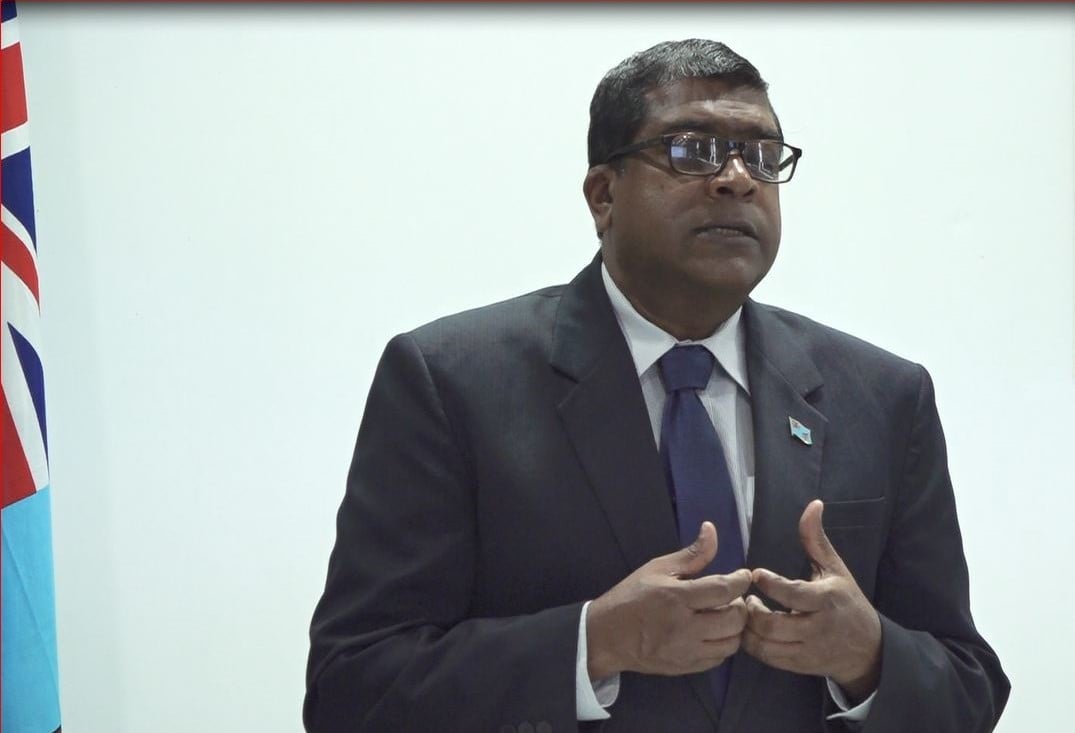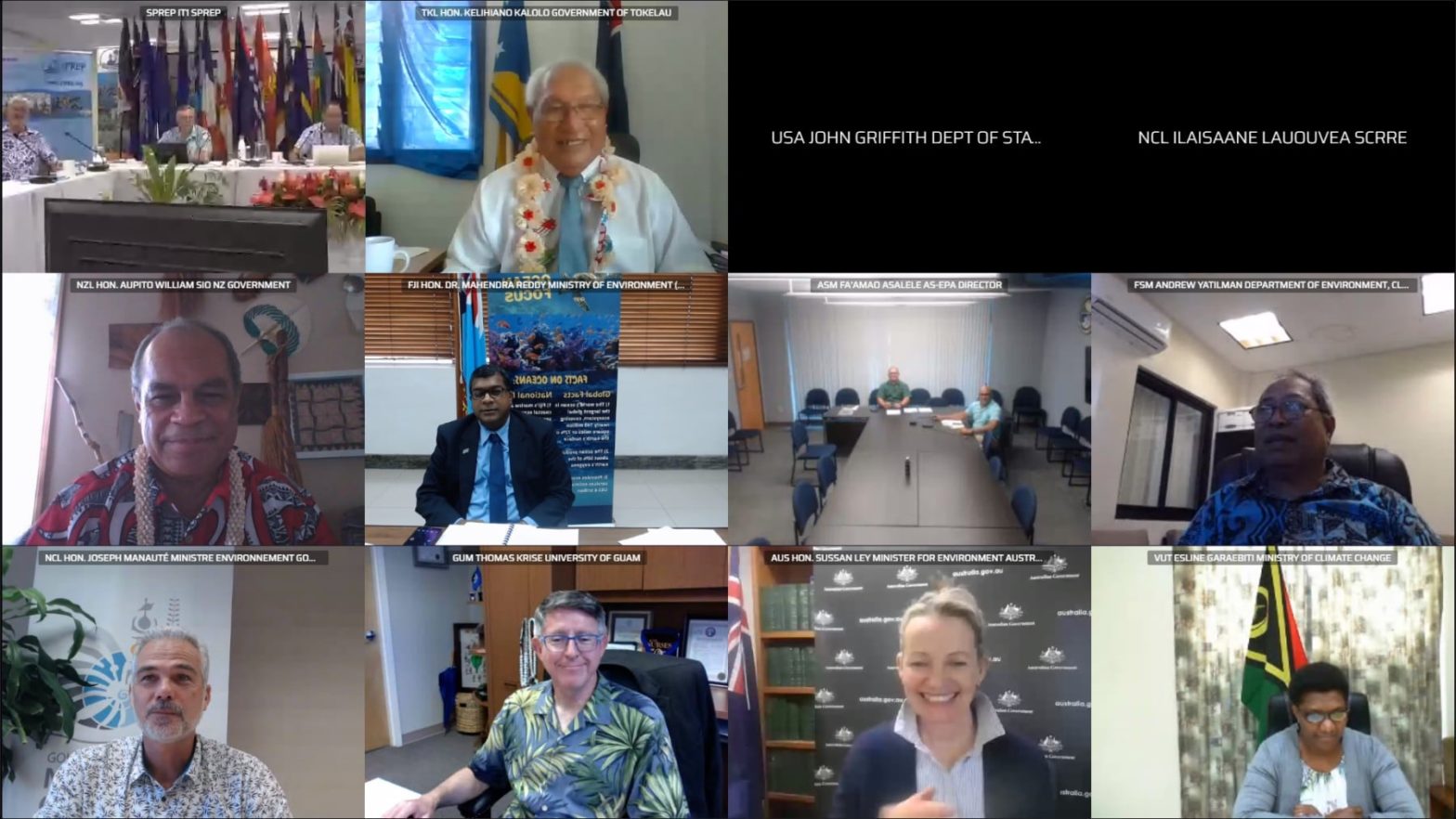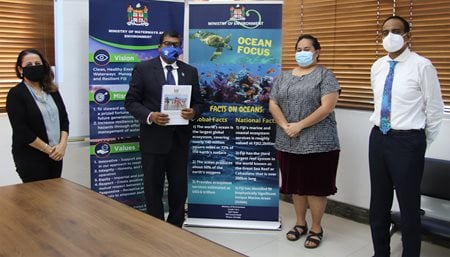“It is essential to set up an environment court to cut down delays which are hindering the implementation of environmental laws in Fiji.
The prosecutions launched in the ordinary Criminal Courts never reach a timely or groundbreaking conclusion either because of the workload in these Courts, lack of specialised judges, or because there is no proper appreciation of the significance of the environmental matters on the part of those in charge of conducting these cases.”
This was the key statement delivered by the Minister for Agriculture, Waterways and Environment, Dr Mahendra Reddy while addressing the Inaugural IUCN Oceania Environmental Law virtual conference on Wednesday.
“Recently, there is an increasing trend in the number of cases based on environmental pollution, ecological destruction and conflicts over natural resources coming up before the Courts. In most of these cases, there is a need for natural scientific expertise as an essential input to inform judicial decision-making. These cases require expertise at a high level of scientific and technical sophistication,” Dr Reddy said.
The Minister also stressed the importance of having a separate environment-specific database or digital resources for good research to determine quality judgments.
“The setup of the environment court can be similar to the “Environment Court NZ” or “Land and Environment Court of NSW” and “Queensland Planning and Environment Court”.
“Such Courts may be vested with the jurisdiction to decide both criminal prosecution cases under the various environmental laws and civil cases for compensation to victims of any activity leading to environmental damage or pollution. These Courts should be allowed to adopt summary proceedings for speedy disposal of the cases.”
“Another challenge facing small island states is that the small number of large corporate companies are at times at odds with internal and external stakeholders. Those strongly advocating the shareholder theory, tend to be the ones to compromise the long-term dimension of the environment in pursuit of the company’s interest. The shareholder theory states that the corporation should serve the interests of shareholders only. Noting possible liabilities, the corporation obtains indemnity cover for the board.”
“The challenge for us is how we graduate them to adopt stakeholder theory which advocates service to society at large. The managers must be responsive to a broad constellation of constituencies both within and outside of the firm. So here, the country’s overarching business legislation comes in handy. The law must hold the Board and employees accountable for harmful side-effects of corporate conduct. The Government of Fiji 4 years ago revised its Companies Act to ensure that the Board and employees of the company can be held accountable,” Minister Reddy said.
“While we undertake these changes as alluded to earlier on, we must also ensure that we have experts on our bench and also outside, both amongst the lawyers and experts, who can understand it and deal with these matters expeditiously.”
“There are companies that I have dealt with as the Environment Minister who are protectively safeguarding their reputational capital. We need to study these firms and delve deep into what has forced them to protect their reputational capital, what they can lose if their reputation is at stake and what policies they have implemented to ensure their reputational capital is protected. These frameworks can then be used to develop firm-specific quasi regulations for implementation,” Minister Reddy said.
The Minister further stated that any law-making and enforcement must accompany buy-in by key stakeholders. “In this respect, Chambers of Commerce for various Municipalities, Employer’s Federations, Fiji Institute of Accountants Congress, the epic body of financial managers of various firms throughout Fiji must all rally behind a behavioural change to protect our environment while business continues to grow.”
“With the onset of the COVID-19 pandemic, the existing legislation(s) have accommodated investor interests through certain legitimate exemptions. This has indeed assisted and will continue to do so and help fast-track investments. These efforts have already started to bear fruits. However, it would be prudent for all environment enforcement agencies to get to the drawing board, list down further possible accommodations and or exemptions that these investments would require and draw up appropriate second and third best responses to these requests.”
Dr Reddy said that the conference is timely and thanked the IUCN for hosting the conference.
This story was published by the Fijian Government on 14 July 2021, reposted via PACNEWS.
Banner: Fiji Minister for Agriculture, Waterways and Environment, Dr Mahendra Reddy. Photo: Fijian Government




